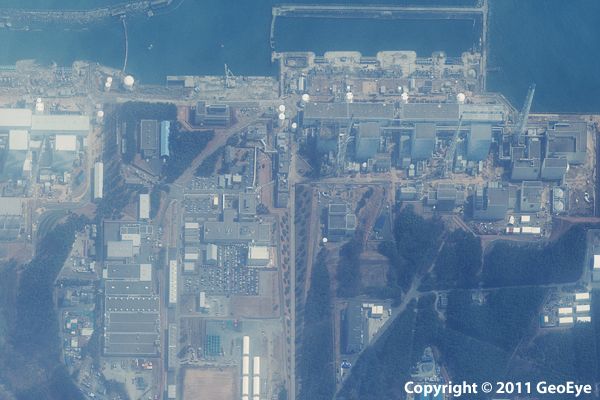Fukushima Disaster Chilled Opinions on Nuclear Power

The nuclear meltdowns at the Fukushima power plant after the Japanese tsunami a year ago has made Americans more leery of nuclear power, according to a Yale University report.
Surveys taken in May 2011 after the Japan tsunami and subsequent nuclear meltdowns in Fukushima revealed more negativity toward nuclear power than surveys taken in 2005 before the disaster. Support for new nuclear power plants also slipped 6 percentage points from 2010.
"Fukushima was a 'focusing event' — a crisis that generates massive media and public attention and ripple effects well beyond the disaster itself," wrote Anthony Leiserowitz, the director of the Yale Project on Climate Change Communication, in an email statement.
In national surveys, Leiserowitz and his colleagues asked Americans to say the first word or phrase that came to mind when thinking of nuclear power. They then sorted the responses and compared them with the answers to the same question asked in 2005.
They found that free associations with the word "disaster" shot up in 2011, from 21 percent in 2005 to 29 percent after the Fukushima disaster. People were also much more likely to say nuclear power was "bad," from 13 percent in 2005 to 24 percent in 2011.
About 12 percent of people associated "nuclear" with "energy," down from 16 percent in 2005. "Nuclear war" came to mind far less often in 2011 when 3 percent of respondents associated "nuclear" with "war," compared with 15 percent who said the same in 2005.
All told, Americans did not support nuclear plants very strongly post-Fukushima, with only 47 percent saying in 2011 that they supported the building of new plants. Even fewer were willing to see nuclear plants in their own backyards: Only 33 percent said they'd be happy to see new nuclear plants in their own area.
Sign up for the Live Science daily newsletter now
Get the world’s most fascinating discoveries delivered straight to your inbox.
The findings appear in the report Public Support for Climate & Energy Policies in May 2011.
You can follow LiveScience senior writer Stephanie Pappas on Twitter @sipappas. Follow LiveScience for the latest in science news and discoveries on Twitter @livescience and on Facebook.

Stephanie Pappas is a contributing writer for Live Science, covering topics ranging from geoscience to archaeology to the human brain and behavior. She was previously a senior writer for Live Science but is now a freelancer based in Denver, Colorado, and regularly contributes to Scientific American and The Monitor, the monthly magazine of the American Psychological Association. Stephanie received a bachelor's degree in psychology from the University of South Carolina and a graduate certificate in science communication from the University of California, Santa Cruz.









